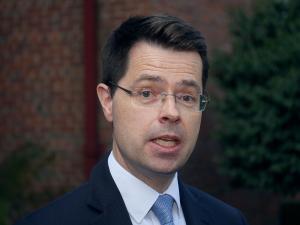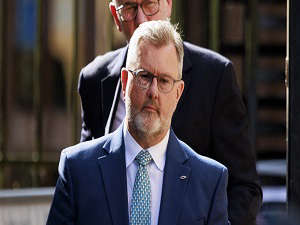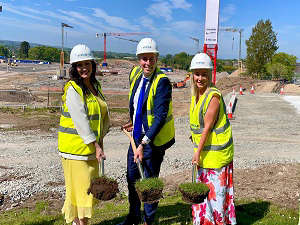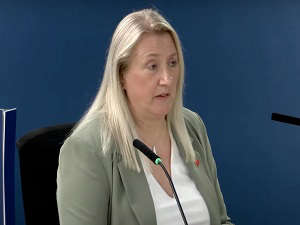
By PA reporter
The Government will countenance the reintroduction of direct rule in Northern Ireland if extended talks to restore powersharing fail, Secretary of State James Brokenshire has warned.
Mr Brokenshire said the intensity of negotiations needed to increase in the days and weeks ahead after a statutory deadline to form a new Stormont executive passed on Monday without agreement.
Addressing MPs in Westminster, he said if there was a successful resolution he would move legislation to enable an administration to be formed without the need for another snap election.
However, if talks fail, he made clear the Government would consider direct rule.
"In the absence of devolved government, it is ultimately for the United Kingdom Government to provide for political stability and good governance," he told the House of Commons.
"We do not want to see a return to direct rule.
"As our manifesto at the last election stated, 'local policies and local services should be determined by locally-elected politicians through locally-accountable institutions'.
"But should the talks fail in their objectives, the Government will have to consider all options."
The Democratic Unionist/Sinn Fein administration collapsed in January amid a bitter row over a botched green energy scheme.
The subsequent snap election campaign laid bare a range of other contentious issues dividing the parties.
Under current legislation, the Government is required to call another snap election if a deadline for forming an executive passes.
Mr Brokenshire said he would seek to amend that law to avoid a new election if a deal can be forged in the time ahead.
Asked if he would stop the salaries of Stormont MLAs if the impasse drifts on, Mr Brokenshire replied: "All options are under consideration."
Without a ruling executive or agreed budget for the upcoming financial year, control of Stormont's finances will be handed to a senior civil servant on Wednesday, albeit subject to tight spending constraints.
Mr Brokenshire reiterated his view that the situation was "not sustainable" in the long term.
He said he had spoken with the main political leaders and the Irish government since Monday and had detected a "strong willingness" to continue engaging in dialogue with a view to resolving the outstanding issues.
"But the window of opportunity is short," he stressed.
"It is essential therefore that the intensity of discussions is stepped up - with renewed intent and focus.
"To that end I will continue over coming days to work closely with the Northern Ireland parties and the Irish government as appropriate.
"I will need to keep the situation under review.
"But if these talks are successful, it would be my intention quickly to bring forward legislation after the Easter recess to allow an executive to be formed, avoiding a second Assembly election, for which I detect little public appetite."
Talks to form an executive in the wake of this month's election collapsed on Sunday amid bitter recriminations between the DUP and Sinn Fein, which blamed each other for the failure.
Proposed legislation to protect Irish language speakers and new mechanisms to deal with the legacy of the Troubles remain logjams in the way of consensus.
Mr Brokenshire said if resolution cannot be attained he would, at the very minimum, legislate after the Easter recess to ensure rates bills could be issued in Northern Ireland so district councils could carry out their functions.
He said he would also "provide further assurance" around the budget position in the region.
The Secretary of State he said he was determined to take forward the stalled legacy bodies.
He added: "It is vital that devolved government, and all of the institutions under the successive agreements, is returned to Northern Ireland as soon as possible.
"And the Government's unrelenting focus is on achieving that objective. Northern Ireland needs strong devolved government.
"To deliver for teachers, doctors and nurses, business, industry and the wider community.
"To ensure that it plays a full role in the affairs of our United Kingdom, while retaining its strong relationship with Ireland.
"And to continue the work of the past two decades to build a stronger, peaceful and prosperous future for all.
"That needs to be the focus of everyone as we approach the crucial next few days and weeks."


 Rescue operation to free 40 cows after lorry overturns on motorway
Rescue operation to free 40 cows after lorry overturns on motorway
 New date set for trial of former DUP leader Jeffrey Donaldson and wife
New date set for trial of former DUP leader Jeffrey Donaldson and wife
 Shared education campus ‘symbolic’ in Northern Ireland’s reconciliation journey
Shared education campus ‘symbolic’ in Northern Ireland’s reconciliation journey
 Man jailed for seven years after crash which killed two teenagers
Man jailed for seven years after crash which killed two teenagers
 Couple died after Covid ‘taken into house by carers’, daughter tells inquiry
Couple died after Covid ‘taken into house by carers’, daughter tells inquiry